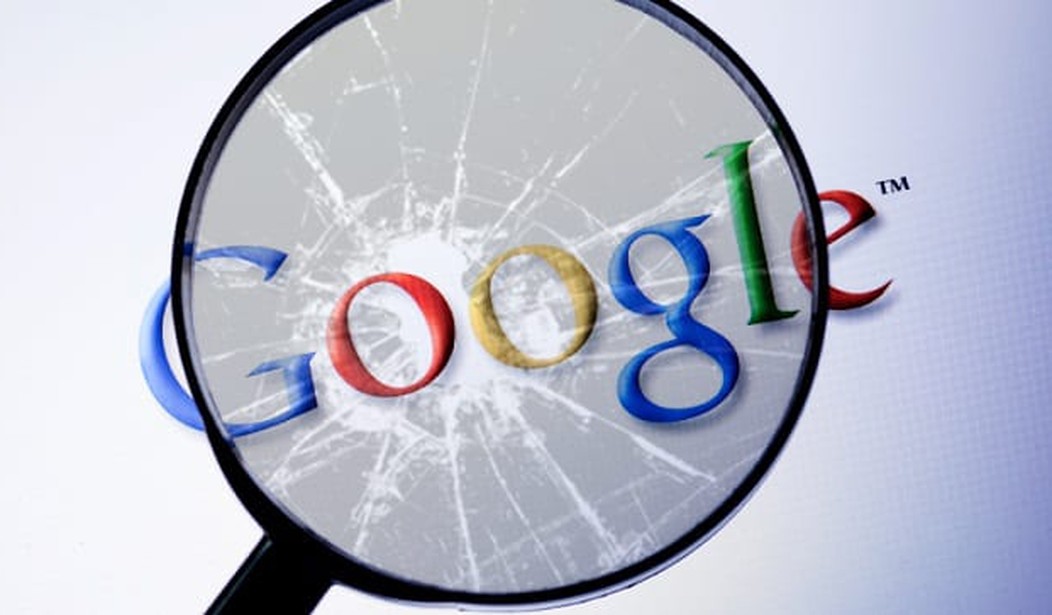Almost a third of Americans actually support Internet companies’ decision to blacklist conservative organizations based on their presence on a “hate group” list published by the Southern Poverty Law Center (SPLC).
When asked whether “internet companies should use this list as an excuse to censor or suppress mainstream and non-violent conservative groups by denying them access to their services?” a full 32 percent of Americans said “yes.” A larger minority, 43 percent, said internet companies should not suppress conservatives, while a full 25 percent admitted they did not know enough to have a strong opinion.
While the McLaughlin & Associates poll showed alarming support for silencing conservatives, it also revealed a strong preference for free speech, leading some to question whether or not respondents understood the question.
The question was indeed long and potentially confusing:
The liberal, George Soros funded, Southern Poverty Law Center (SPLC) has created a list of organizations it claims use “hate speech,” and has placed many mainstream conservative political non-profit organizations on that list, mixing them in with genuine domestic terror groups like the KKK and Aryan Brotherhood. Recently, internet companies like Paypal, Google, Facebook and Twitter have started colluding with the SPLC by using their list as an excuse to selectively censor mainstream conservative thought. Knowing this to be true, do you think these internet companies should use this list as an excuse to censor or suppress mainstream and non-violent conservative groups by denying them access to their services?
Elsewhere, respondents showed a firm preference for free speech. When asked if the Constitution “guarantees that all Americans are entitled to free speech,” 85 percent said everyone, including white supremacists and neo-Nazis, have free speech under the Constitution.
Another 85 percent identified free speech as “a fundamental right,” while only 9 percent said speech should be restricted “if it offends some people.”
Furthermore, when asked about “left-wing protesters” from antifa and told the group “advocates violence as the appropriate response to free speech they disagree with,” respondents said they opposed the group. Almost two-thirds, 63 percent, opposed antifa, while only 21 percent supported the group. Sixteen percent said they didn’t know, or just refused to answer.
When asked about the high level of support for silencing conservatives, Chris Gacek, senior fellow for regulatory policy at the Family Research Council (FRC), suggested that it was an outlier. “Given the other dimensions of the poll, it seems to be in tension. I think that the gist of this whole thing is that people are still very committed to free speech,” Gacek told PJ Media.
He noted that for most Americans, “it’s not unreasonable to not know” groups like antifa and the SPLC. When it comes to this specific result, he said “I think they’re probably just confused by the question.”
Gacek suggested that most people are rightly concerned about Internet companies’ ability to effectively regulate speech. “The power of these companies to dictate speech could be illustrated in a way that most people would say, ‘I don’t like this.'”
“My general feeling about people is that most folks are suspicious of these companies when it comes to privacy,” the FRC fellow added. “This whole sort of Brave New World of technology power” makes people uncomfortable.
“With Amazon buying Whole Foods, you have to say, ‘Do you want one company to run the entire economy?'” Gacek asked. He compared the power of companies like Amazon and Apple to the “robber barons” of the 19th century.
“We have a new set of robber barons. They don’t beat the heck out of people in their steel factories, but they suppress speech,” he said. Such organizations “appear to be manipulating the way people think in critical ways and lie about it.”
The FRC director mentioned a few recent cases where Internet companies have targeted conservatives because of the SPLC list.
At the end of August, Vanco Payments withdrew its service from the Ruth Institute, taking away that organization’s ability to process donations online.
In June, the charity navigation website GuideStar adopted the SPLC “hate group” list, marking each profile of the targeted organizations as a “hate group.” This action inspired the first of three lawsuits against the SPLC, launched by the Christian nonprofit Liberty Counsel.
In December, D. James Kennedy Ministries was denied access to Amazon’s charity connection service, Amazon Smile, because it was listed as a “hate group” by the SPLC. They also filed a lawsuit against the SPLC for defamation.
Last month, ProPublica “reporter” Lauren Kirchner sent an email to conservatives like Robert Spencer and Pamela Geller that amounted to a threat. “I am contacting you to let you know that we are including your website in a list of cites that have been designated as hate or extremist by the American Defamation League or the Southern Poverty Law Center.”
The email noted, “We have identified several tech companies on your website: PayPal, Amazon, Newsmax, and Revcontent. Can you confirm that you receive funds from your relationship with those tech companies? How would the loss of those funds affect your operations, and how would you be able to replace them?”
As PJ Media’s Paula Bolyard paraphrased, “Nice website you’ve got there. It would be a shame if anything happened to it.”
Google officially announced that it was partnering with the SPLC and ProPublica to launch the Documenting Hate News Index. Similarly, Apple CEO Tim Cook announced that his company would give the SPLC $1 million, that it would match employee contributions, and that it would set up a system in iTunes software for consumers to donate directly.
“The list is getting used as though it’s some kind of law taken by Moses down from Mount Sinai,” the Family Research Council’s Chris Gacek told PJ Media.
Gacek knows better than most why this is a serious problem.
His organization penned a letter to the media, warning against taking the SPLC “hate group” list seriously. That letter noted the fifth anniversary of a terrorist attack on the Family Research Council by Floyd Lee Corkins II. Corkins intended to kill everyone in the building, and terrorize other organizations as well. He pled guilty to committing an act of terrorism and was sentenced to 25 years in prison. During an FBI interrogation, he said he targeted the FRC because of the SPLC “hate map.”
The SPLC briefly listed Ben Carson as an “extremist” on its list, and only took his name down following a public outcry. Just last week, the group removed the innocent historic town of Amana Colonies from its “hate map.” Furthermore, the group seemed unable to decide why Muslim Maajid Nawaz was guilty of “anti-Muslim extremism.” It listed and removed many different reasons, one of which was Nawaz’s visit to a strip club for his bachelor party.
The group also recently released a map of all Confederate monuments across America, which just happened to include elementary schools, middle schools, and high schools. The SPLC’s post publishing the map also warned of “turmoil and bloodshed” if Confederate monuments were not removed.
Such a map may not inspire a terror attack like that perpetrated by Floyd Lee Corkins at FRC, but it could easily inspire protests. Americans have seen recent protests against Confederate monuments break out into violence, and no kid deserves to walk to school amidst flying rocks, spraying mace, and the kinds of disruptions associated with “antifa” activists.
Who do Google, Amazon, Apple, and other companies continue to associate with the SPLC and treat its “hate list” like the Ten Commandments? Gacek pointed to a recent incident at Google to explain this.
When Google’s senior software engineer, James Damore, wrote a memo attacking Google for fostering an “intellectual echo chamber,” he was fired. Gacek laughed, “Then of course they fire him.” The FRC fellow suggested that Google’s leaders had “no sense of self-awareness of the situation they were in. That was really quite astonishing.”
The James Damore episode illustrated “that Silicon Valley and people in these tech companies are so secular that they have no contacts with Red State America,” Gacek argued. “They’re incredibly insular. They think of themselves as cosmopolitans, but the opposite is the case. They are amazingly insulated.”
Laughing again, the FRC fellow noted, “They do these sorts of things and they think everyone is going to love them for it.”
Internet companies need to realize that not all Americans think the way they do. Gacek suggested that James Damore was right — that Google, Apple, Amazon, Paypal, and other companies need to break out of their bubbles and support free speech for everyone.
That starts by realizing that the SPLC’s “hate list” is not a legitimate list of white supremacists and terrorists. It also includes mainstream conservatives and Christians, and it needs to be taken with a grain of salt. If all this evidence were not enough, a former SPLC spokesman actually declared that his organization’s “aim in life is to destroy these groups, completely destroy them.”
Recent events have shown that Internet companies do not understand conservatives, and that they blindly accept as gospel truth a list that ranks the Family Research Council along with the Ku Klux Klan. Americans need to deliver the message that the SPLC cannot be trusted, that its list is dangerous, and that the customers of Apple, Amazon, Google, and PayPal will not stand idly by as those companies partner with a defamation organization.
Enough is enough.








Join the conversation as a VIP Member